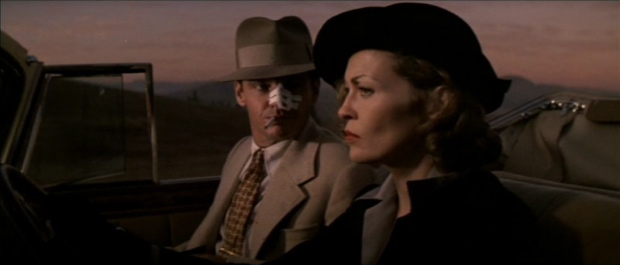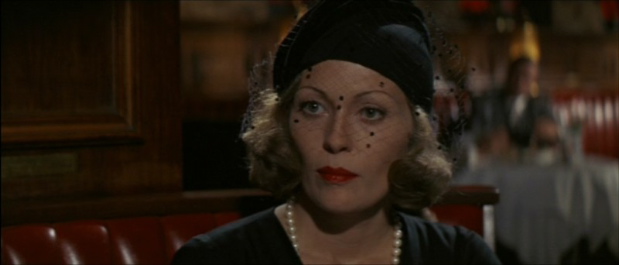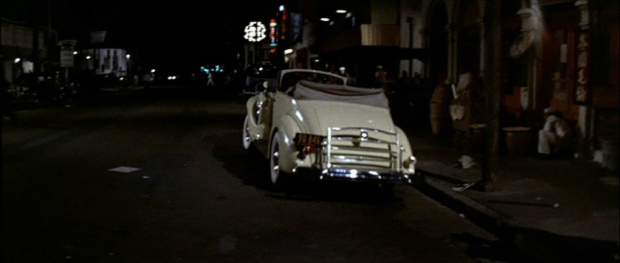
Chinatown is one of the few neo-noirs that really lives up to the designation. Its view of the world is truly bleak — a moral maze from which there is no escape. As with many films noirs there’s an indictment of the political system but also a sense that corruption
is universal, not limited to any one class. It’s an existential corruption.
The big difference between Chinatown and the classic post-WWII noirs is one of gender perspective. The post-war noirs were centrally concerned with male anxieties, with the way the world looked from the point of view of a suddenly inauthentic and insecure
manhood. In them, a man might be ruined by a powerful female, a traditional femme fatale, or he might be saved by good woman, but in both cases the situation was beyond his control. Chinatown finally took a look through the other end of the telescope, imagining what the general collapse of manhood might mean for women.

As screenwriter Robert Towne has said, Evelyn Mulwray is the only
character in the film who operates out of purely decent motives, trying
to rescue herself and her daughter from the clutches of a rancid,
decayed patriarchy. The protagonist of the film, private eye
Jake Gittes, is a decent enough fellow but impotent when it comes to
helping, much less saving, her.
We’re not quite dealing with a feminist perspective here — we’re still
looking at the mess from a male viewpoint, assessing the male’s failure
of responsibility rather than exploring the female’s search for empowerment —
but we’re a long way from the phallocentric cry of male bewilderment and pain that
was at the heart of film noir.

Still, the deconstruction of the traditional femme fatale
is very thorough and deliberate, because Evelyn Mulwray is first
presented as a kind of spider woman, with all the generic clues that
used to alert us to the fact that the woman in question was going to be
trouble . . . and that’s how Gittes constructs her. The big
switcheroo is that Evelyn is in much more trouble than she has the
capacity to cause anyone else, that it’s her father’s fault and that
Gittes isn’t smart enough or strong enough to deliver her from it.
Towne’s conversation with the noir tradition is very elegant and profound. He goes back, in the film, to 1937, to the hardboiled detective fiction out of which film noir mutated, and deconstructs the “tarnished knight” of that form, locating in him the existential nullity of the film noir protagonist. Gittes has Phillip Marlowe’s private code of nobility, his commitment to a kind of rough justice, but it’s not enough anymore. The only real nobility he has left is his ability to recognize the cost of his own impotence.

When his associate speaks the film’s famous last line to him, “Forget
it, Jake — it’s Chinatown,” we know he won’t, we know he can’t.
He lives there now — and somehow, because of his failure, we all do.
